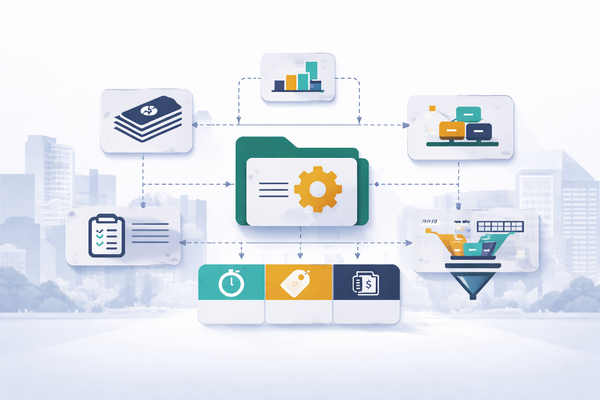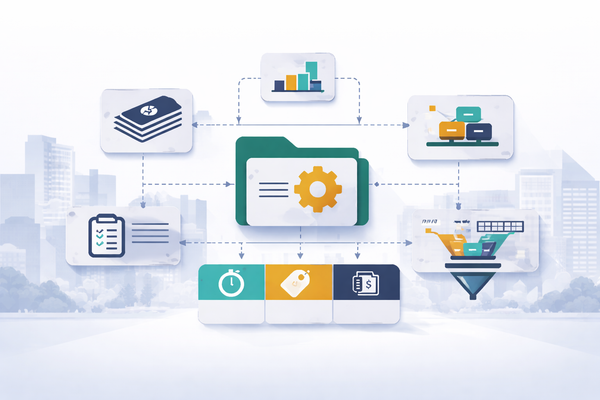10 Warning Signs Your ERP Implementation Will Go Off Track

ERP implementations are among the most ambitious initiatives an organization can undertake. They promise streamlined processes, better data, and improved decision-making — but too often, they go over budget, fall behind schedule, or fail to deliver value.
The truth is: ERP projects rarely fail because of technology alone. They fail because of missed fundamentals — governance, data, ownership, and change management.
Based on years of experience in finance and ERP, here are 10 early warning signs your project might be headed in the wrong direction. Spot them early, and you can correct course before it’s too late.
For a broader perspective on governance, human dynamics, and accountability in ERP initiatives, see our ERP transformation practical guide.
👉https://www.fitgapfinance.com/erp-transformation-practical-guide/
1. Unclear Project Ownership
If no one can clearly say who “owns” the project, decisions get stuck. Successful projects have a visible, accountable sponsor who takes responsibility for outcomes — not just IT, but at the business level.
💡 Related reading: The ERP Implementation Journey: From Design to Go-Live
2. Weak Governance Structure
A steering committee that only meets on paper isn’t enough. Without escalation paths, clear roles, and regular checkpoints, issues pile up and get addressed too late.
3. Lack of Clear Business Case
If your team can’t answer “why are we doing this?”, you risk low adoption. A business case keeps everyone aligned, secures buy-in, and ensures the project delivers measurable value.
4. Over-Customization
Trying to replicate the old system in the new one leads to complexity, higher costs, and delayed upgrades. ERP works best when you adapt processes where possible instead of forcing heavy customizations.
5. Data Migration Left for Last
Data isn’t “just IT’s problem.” Treating migration as an afterthought creates last-minute surprises, poor data quality, and delayed cutovers. Data strategy should start early, with clear ownership and testing.
💡 Related reading: Data Migration in Dynamics 365: How to Avoid the Most Costly Mistakes
6. Poor Change Management
Even the best system will fail if users don’t adopt it. Skipping training, communication, or engagement is a recipe for resistance. Change management is a business priority, not a nice-to-have.
7. Siloed Processes
ERP is about integration — finance, operations, supply chain, HR. If departments optimize only for themselves, the result is fragmented processes that miss the real benefits of an ERP platform.
8. Underestimating Testing
Testing is where theory meets reality. Rushing through it or treating it as a checkbox leads to major defects at go-live. End-to-end testing with real data is essential.
9. No Dedicated Business Resources
ERP projects cannot be run by IT alone. If business users are only involved “on the side” of their regular jobs, they won’t have the time or focus to properly design processes, test scenarios, or support adoption. Successful projects assign dedicated business representatives who act as bridges between operations and technology.
10. “It’s an IT Project” Mentality
The biggest warning sign of all: when business leaders disengage and leave ERP to IT alone. ERP is a business transformation — and without business input, the system won’t reflect reality.
Final Thoughts
ERP projects succeed not by luck, but by vigilance. The earlier you spot these warning signs, the easier it is to steer the project back on course.
👉 Want to quickly assess where your project stands? Download the ERP Health Check Checklist for a structured way to identify gaps before they become costly mistakes.



